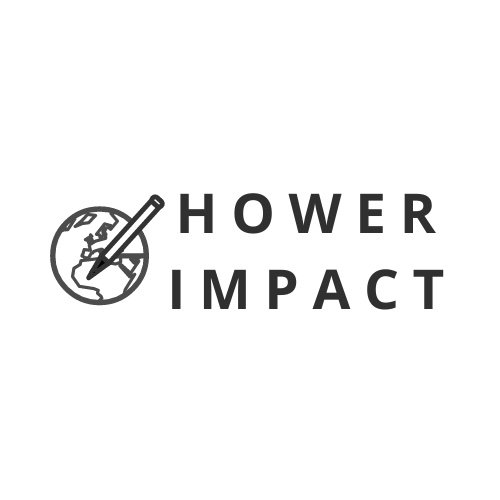Ep. 7: How the owners of Grand Theft Auto communicate sustainability
The video game industry is just now “pressing start” on corporate sustainability. With comparatively low levels of resource intensity and often complex chains of custody and responsibility for social and environmental impacts, many video game makers are just now figuring out their sustainability strategies. Even still, communicating sustainability in this sector faces its own challenges and opportunities.
To better understand how the video game industry is approaching sustainability storytelling, Mike connected with Neil Patel, Senior Director of Sustainability at Take Two Interactive Software — owner of Rockstar Games, which produces the popular Grand Theft Auto Franchise.
Read the full transcript of the conversation below. You can also listen to this episode on Spotify, Apple Podcasts, Amazon Music and YouTube.
Mike Hower: Hey everybody. I'm here today with Neil Patel, Senior Director of Sustainability at T2. T2 is a video game developer and publisher for consoles and mobile. They own Rockstar, maker of series like Grand Theft Auto. Thanks for being here today, Neil.
Neil Patel: Hey, thanks Mike, I'm happy to be here.
Mike: Today, I wanted to ask you a couple questions about sustainability communication trends you're seeing across the gaming and tech sector. So to kick it off — we’ll just start there — what are some of the biggest communications challenges that you're seeing currently in the gaming and tech sector?
Neil: Sure. This is a great question because I think the biggest challenge right now for us is that sustainability is fairly new to the gaming industry. As companies and our peers are starting to develop their strategies and their understanding of their impact. I think the stem is from— we're not really a resource intensive kind of industry and there's a lot of uncertainty of where that responsibility goes, right? Because we develop the games but we rely on different consoles or your phone or the Internet provider to really transmit those games. And so now we're working with peers across our value chain to really understand what that is. And so the challenge is communicating why it's important and why it matters to the business — and then what we can do about it.
Mike: Can you tell me a little bit about T2's approach to communicating sustainability?
Neil: Yeah, right now it's really about setting up the foundation. So, a lot of the topics are new to the company, and to the industry. And so a lot of the comms are spent around education — really explaining what the topic is — explaining why it's important or why it's not important as material to us. And so, what we're doing here is just really connecting all these different topics to the business. And making those stronger and a little bit clearer. And so, as we come out with strategies or initiatives, it helps explain it — and it helps our employees and our stakeholders really understand why we're doing things.
Mike: I know you were mentioning earlier before we started recording that you're really thinking about getting your company ready for complying with CSRD and other regulations coming out of Europe and also in California. Can you talk a little about that and how you're approaching that?
Neil: Sure. That's definitely a big concern for us — the regulatory and the compliance aspect of sustainability of ESG. And so, we want to make sure that we're not duplicating efforts, right? We don't want to have a huge sustainability program. And then redoing a lot of our data collection or our work so it complies with all the various regulatory frameworks out there. What we want to do is we want to be efficient in our work. You know, we're not just here to sign documents and create policies — but we're actually here to make an impact. And so we want to see what the guidance is out there. See where the mapping exercises are, where there's alignment, where does our kind of organization come in — and make sure that we're making decisions that strengthen the business at first and then can address a lot of these regulatory issues.
And so, if we set it up before we have a really deep program or really embedded program, it'll make it a lot easier to comply with them.
Mike: As we move into 2024, what are some of the key sustainability communication trends that you're seeing?
Neil: Yeah. I'm starting to see — and I hope I see more of it — is the movement back to making it simple. I think we kind of got away from it over the past two, three, four, five years, really as companies got more advanced and more mature, they got more technical. And so, I think they brought a lot more, really specific definitions, a lot more jargon into their communications because they're trying to be really precise to demonstrate that they fully understand the topic that they've really grasped what it is. But I think what that does is it creates a gap between normal consumers or people that aren't as involved in the day-to-day. And understanding what that actual impact is. So I think, we've over indexed to precision and accuracy where we will start to fall back a little bit and be more focused on the qualitative descriptions to really demonstrate what the actual impact is, and using common language, right?
And I also think that kind of leads to the next point: a lot of companies when they're doing sustainability, we'll try to do every single topic because they get asked about that. But I think companies now with regulation coming out with materiality as being a more of an important aspect, finding was actually relevant to the organization and understanding that it's better to go deeper on a few topics versus, you know, kind of shallow on a wide variety of topics.
Mike: I can definitely see that my own work with a lot of companies on sustainability reports — for example, some companies want to just capture every single topic in the report that might not even be material to them just because they feel like they need to tell a holistic story. But you're right — I think we're moving from the broad narrative to the more narrow, specific narrative around sustainability efforts.
Neil: A lot of that time spent covering those smaller, unrelated topics is time and resources not spent on actually doing more of the impactful work.
Mike: Right. You’ve got to make sure that you're investing and actually doing the work — adding substance to your story —not just focusing just on the story, right?
Neil: Yeah, we only have limited capacity.
Mike: I always like to ask everybody I talk to about their career journey. Would you be able to tell us just maybe real briefly about how you got to where you are — and any advice you'd give to somebody trying to break into sustainability?
Neil: Yeah, that's a great question. And I think it's interesting because no journeys are really that similar in sustainability — these professionals come in all different shapes and sizes. And so, my journey started — my training, my education is in mechanical engineering. And my first work out of college was helping design more efficient buildings in the city [New York] — and then that slowly worked and grew it where I was inhouse helping the company save energy on their manufacturing. And then sustainability kind of evolved from the energy and the emissions focus to more the broad kind of sustainability that we see today. And with that, the role expanded, and so from taking that experience for manufacturing I was able to jump to a few different industries. But I was able to do that because sustainability focuses — the work is all the same. You're creating clear projects, you're tracking it, you're being able to communicate performance and impact regardless of the industry.
And so, as the topics or the definition might change a little bit, the work inherently is the same. And so, in terms of advice on getting in there, I prioritize finding sustainability in the passion or the career that you're currently in — and using that as kind of the wedge in, right? Because each role can be done a little bit more sustainably. And so, there's always that kind of overlap.
Mike: Yeah, I think you're right. I think there's no one pathway in sustainability. And it's always tough to give career advice because it really boils down to just — you gotta stick it out and eventually you'll find your way there — which is not what people want to hear. But I think all of us — we got here through endurance, I think. Well, thank you, Neil. This was super helpful. I hope you have a good day and thank you so much.
Neil: Thanks. Yeah. Anytime. All right. I'll talk to you soon.


